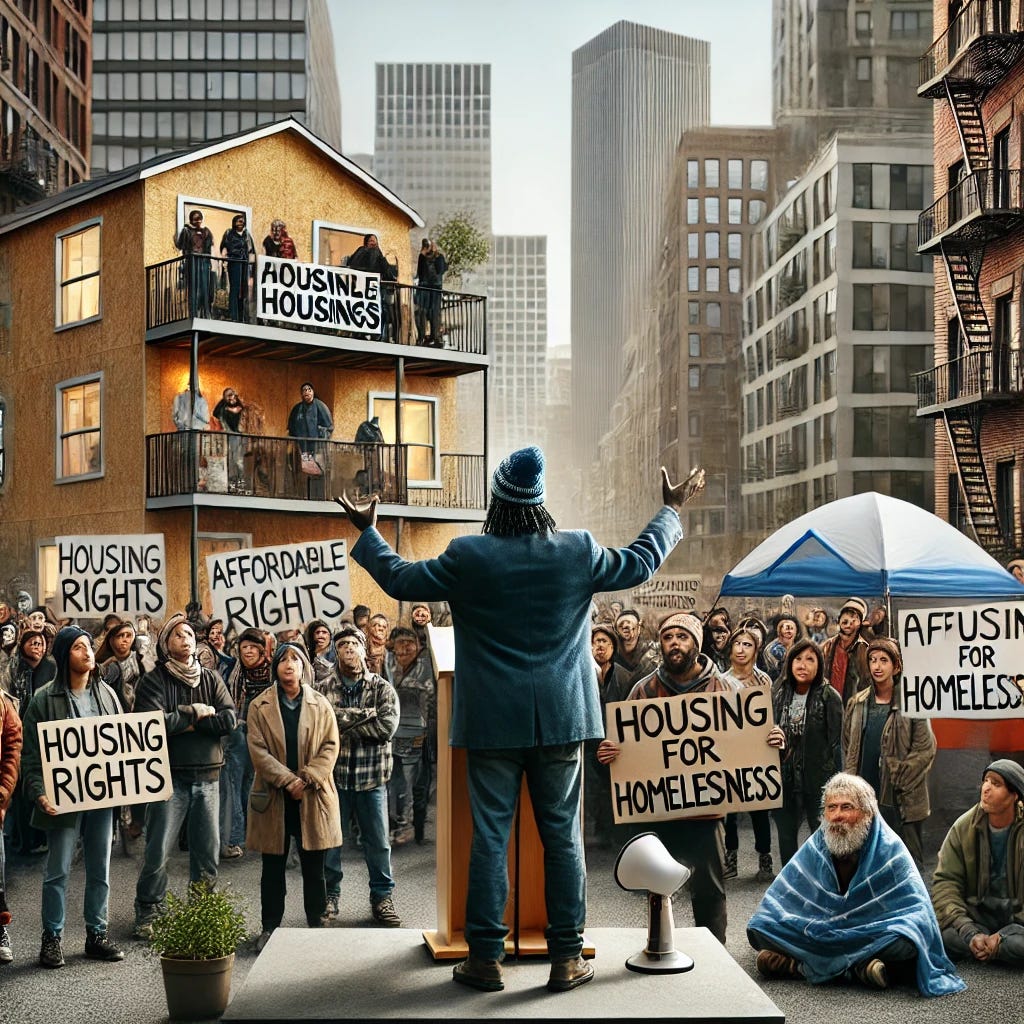🟧 Affordable Housing & Homelessness
A ranked guide to advocacy groups advancing housing access and supporting people experiencing homelessness.
Here are advocacy groups in the United States that play significant roles in advocating for housing rights and policies that benefit low-income individuals and families, as well as addressing issues of homelessness and housing insecurity. Some organizations use the term unhoused to emphasize the structural causes of homelessness.
Their websites may provide action alerts, how-to guides, news reports, position papers, event announcements, videos, newsletters, and other resources to help you learn about these critical issues and take meaningful steps to influence your elected representatives.
About These Advocacy Group Guides: I’ve created more than 60 issue advocacy guides to help people connect with effective organizations and take meaningful action. If you’re interested in other issues, you can explore them all here: Advocacy Groups by Issue.
National Low Income Housing Coalition (NLIHC)
Advocates for affordable housing and works to ensure that low-income individuals and families have access to safe and decent housing.
A nonprofit organization that helps families build and improve places to call home. They advocate for affordable housing policies and provide housing assistance.
The National Housing Law Project (NHLP)
Focuses on protecting the housing rights of low-income people through legal advocacy, education, and litigation.
A national nonprofit that helps create affordable housing for low-income families and advocates for policies that support housing stability and equity.
The Coalition for the Homeless
Works to prevent and end homelessness in the U.S. through advocacy, public education, and the provision of direct services.
National Alliance to End Homelessness
A leading voice on homelessness policy and advocacy in the U.S., focusing on preventing and ending homelessness through research, education, and advocacy.
Works to end homelessness by helping communities implement data-driven solutions and innovative strategies to reduce housing insecurity.
The U.S. Interagency Council on Homelessness (USICH)
Coordinates the federal response to homelessness and promotes a national commitment to ending it. Under the current administration, the agency’s authority and funding may be subject to cutbacks, but it continues to serve as a central hub for federal housing policy and strategy.
A nonprofit organization that provides a platform for individuals experiencing homelessness—often referred to in their materials as unhoused—to share their stories and advocate for change.
National Coalition for the Homeless (NCH)
Focuses on advocacy and education around issues related to homelessness, providing resources and tools for grassroots activists.
Top Issues of Housing and Homelessness
Affordable Housing: The lack of affordable housing options is a major contributor to housing instability and homelessness.
Housing Insecurity: This refers to individuals and families who may be at risk of losing their homes, emphasizing the broader context of unstable housing situations.
Displacement: Refers to individuals and families who are forced to leave their homes due to various factors, including gentrification or housing policy changes.
Access to Support Services: Availability of mental health services, addiction treatment, and job training programs that help individuals transition out of homelessness and housing insecurity.
Housing Discrimination: Discriminatory practices in housing that disproportionately affect marginalized groups, impacting their ability to secure stable housing.
Tenant Rights: Protecting the rights of renters, including legal protections against eviction and unfair landlord practices, which are essential for maintaining housing stability.
Emergency Shelter Availability: The need for adequate emergency shelter facilities for those experiencing homelessness and housing insecurity.
Housing First Initiatives: Programs that prioritize providing permanent housing to homeless individuals without preconditions, aiming to reduce housing insecurity.
Zoning Laws and Land Use: Local policies affecting the availability and development of affordable housing, crucial for addressing both homelessness and broader housing issues.
Economic Inequality: The broader economic factors contributing to housing instability and homelessness, including wage stagnation and rising living costs.



